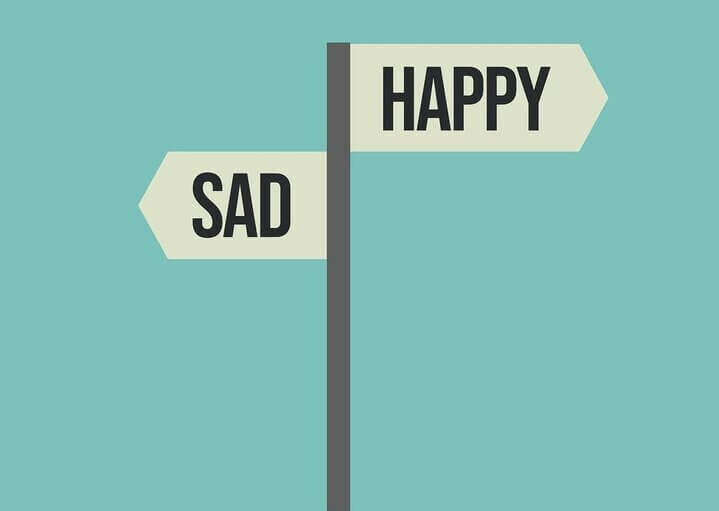Emotions and personal growth go hand in hand on the journey of self-improvement. They are complex, ever-changing, and can influence your thoughts, behaviors, and actions. In short, they are a fundamental part of your human experience.
Embracing your emotions can help you grow as an individual. And mastering them can pave the way for transformative change in your life.
In this post, we will discuss nine practical ways to use your emotions for personal growth.
9 Practical Ways to Use Your Emotions for Self-Improvement
By practicing self-awareness, you can learn to use your emotions as tools for growth. The following are nine easy-to-follow ways to help you use emotions to improve your life.
1. Become aware of your emotions and personal growth
The first step in using your emotions for self-improvement is to become aware of them. Recognize when you’re feeling happy, sad, angry, or scared. Then accept these feelings as part of your experience.
Often, we try to suppress or ignore our emotions, especially the negative ones. However, this can be harmful in the long run, as it can lead to repressed feelings and unprocessed trauma.
Acknowledging your feelings helps you understand yourself better. It also makes it easier for you to guide your emotions and personal growth.

2. Look at the meaning and importance of each emotion
Take a sec to think about why you’re feeling a certain way. What’s the purpose of that emotion? Dig deep into its meaning.
Try to understand what your emotions tell you about your environment, needs, or values. This can provide valuable insights into your behavior and changes needed for personal growth.
Your emotions carry valuable messages. Instead of letting them control you, use them as opportunities to grow. Difficult experiences can become valuable lessons when viewed through a positive attitude.
3. Be aware of your triggers
Observe how different situations or people trigger specific emotional responses.
By understanding your reactions, you’ll gain insights into your thoughts and behavioral patterns. Then you can prepare and work on strategies to handle them better.
Here’s an example: Whenever someone criticizes you, do you immediately become defensive? That’s completely normal, but what if you tried taking a step back instead? All you have to do is respond with curiosity and openness, and the results might surprise you.
4. Use your emotions as signals
Emotions alert you when something needs your attention. Instead of ignoring them, use them as signals for self-reflection and improvement.
For example, if you’re anxious about starting a new project, it could be a sign that you need to work on your confidence. If you’re jealous of someone’s success, it could mean you doubt your own abilities to succeed.
By paying attention to your emotions, you can identify areas of personal growth and take action towards improving them.

5. Use positive emotions as motivation and learn from negative emotions
Harness the energy from your positive emotions to propel you forward. Let joy and excitement motivate you to take action towards your goals and dreams.
On the other hand, negative emotions are often seen as undesirable. Yet, they can also teach you valuable lessons about yourself.
Instead of avoiding or suppressing these emotions, try to learn from them. You can gain insight into areas of personal growth and make positive changes in your life.
6. Emotions guide you to what needs improvement
When you pay attention to your emotions, you can identify areas that need improvement. By addressing these, you create a life filled with meaning.
For example, be aware of your emotional reactions. If particular scenarios evoke negative emotions, it means these areas need attention. Maybe it’s your job, a relationship, or personal habits. Your emotions can guide you to focus on improving these aspects.
If your emotional abilities aren’t in hand, if you don’t have self-awareness, if you are not able to manage your distressing emotions, if you can’t have empathy and have effective relationships, then no matter how smart you are, you are not going to get very far.
– Daniel Goleman
7. Explore the impact of your emotions on decision-making
Emotional states can impact the decisions you make. So, it’s important to stay aware and recognize it.
For example, when anxiety sets in, it’s natural to play it safe. You want to make cautious decisions to reduce risk. By realizing this, you can find a balance between caution and seizing opportunities. Why let anxiety hold you back when you could take advantage of opportunities that come your way?
With this awareness, you can pause and consider whether your emotions are leading you to make impulsive decisions, or if they’re guiding you towards what’s best for you.
8. Shift your mindset and take action
Your emotions are not fixed states, but signals that you need some change. Use them to switch up your mindset or take some steps to improve yourself. Sometimes, shifting your mindset is all it takes to transform an emotional experience.
For instance, when you’re caught in a negative thought loop, try shifting your perspective. Focus on the lessons and opportunities that challenges can teach you.
Convert your insights into action. If you’re feeling unhappy in your current job, start exploring new career opportunities. If new ideas inspire you, take steps to bring those to life.
Remember that taking action is essential for achieving your goals.

9. Learn to control your emotions
Learning to manage your emotions puts you in the driver’s seat of your own growth. With this knowledge, you can create a life with authenticity and joy.
For instance, rather than letting outside factors control how you feel, you opt to foster optimism and focus on gratitude. You take steps to manage stress and remain calm in the face of challenges.
And while you can’t always control how you feel, you can control how you react to your emotions. Emotional mastery means understanding how to respond to your emotions in ways that benefit you.
Related article: Empower Yourself: How to Master Your Emotions for a Fulfilling Life
Wrapping Up: Emotions and Personal Growth…
Learning to use your emotions as tools for growth is a skill, and it takes practice. With patience and self-awareness, you can incorporate these strategies into your daily life.
Doing so will help you gain a deeper understanding of yourself and the function of emotions. You’ll make better life choices and create a more fulfilling and joyful existence.


0 Comments